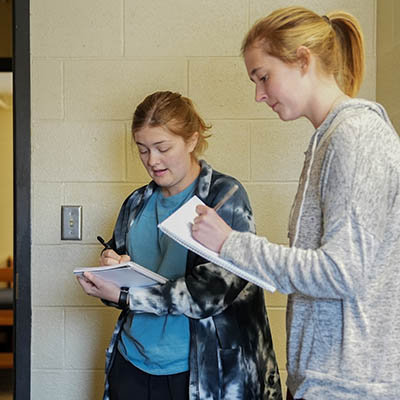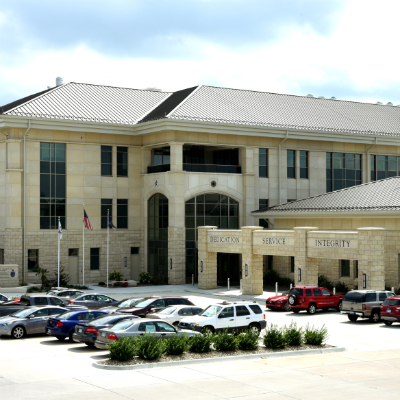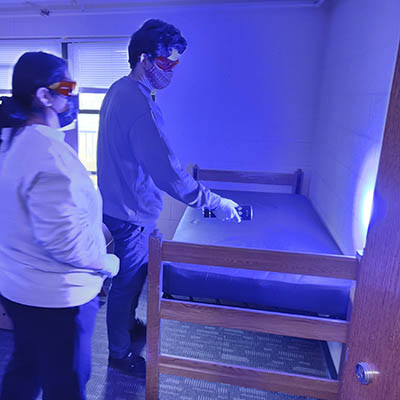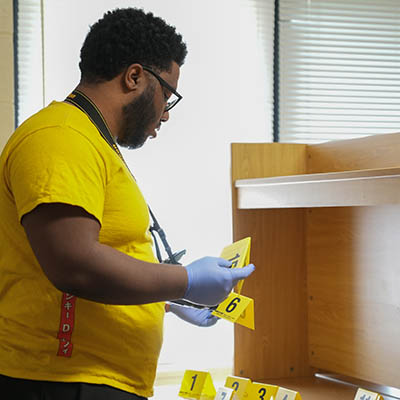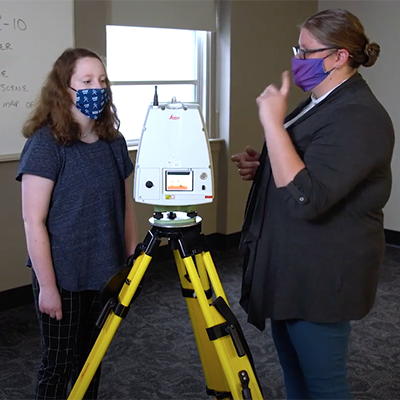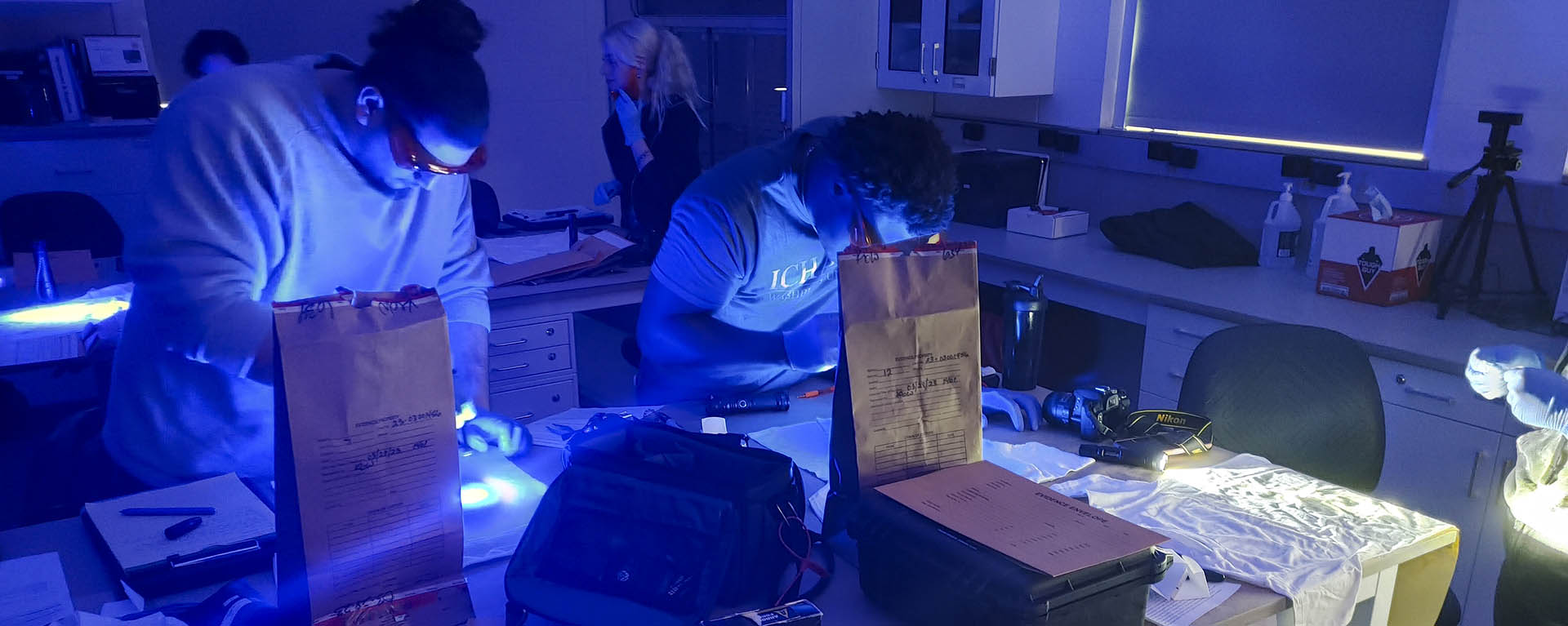
Forensic Investigations at Washburn
Washburn University's Forensic Investigations Program prepares students for the crime scene field by providing classroom and practical-based learning. Students utilize real-world tools and equipment, as well as laboratory and mock scene environments to analyze, document, and collect physical evidence.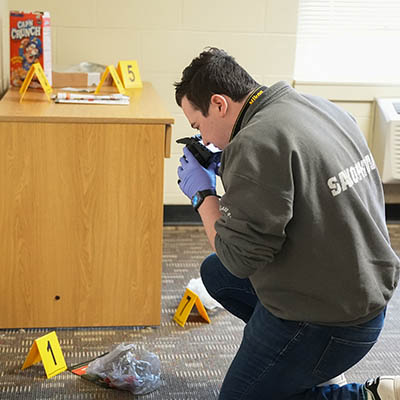
Why study Forensic Investigations at Washburn?
In Washburn's Forensic Investigations and Forensic Investigation Sciences programs, you will complete specialized coursework designed to prepare you for work as a crime scene investigator. Coursework encompasses classroom-based learning as well as many laboratory courses hosted at the Kansas Bureau of Investigation's (KBI) Forensic Science Center (FSC) located on the Washburn University campus.
Washburn's collaboration with the KBI and other regional forensic agencies means that students are working alongside, and in conjunction with, faculty and staff who currently work and have experience in the criminal investigation field.
Many of the degree-required courses are offered in an online format, and prepare you to graduate with career-ready skills in evidence identification, collection, and preservation that will make you a valued part of an investigations team.
Admissions scholarships
Washburn University offers generous scholarships based on your interests, career aspirations, community service and academic success.Criminal Justice scholarships
The Criminal Justice department offers a variety of scholarships based on academic performance and career pursuits. New and transfer students are eligible. Applications are due early in the spring.- Admissions scholarshipsAdmissions scholarships
- Criminal Justice scholarshipsCriminal Justice scholarships
Tuition and fees
Courses in this program are offered at the Traditional Undergraduate and Traditional Online Undergraduate rates.Financial aid
Washburn University offers generous undergraduate financial aid, including scholarships and grants.Tuition waivers
If you don’t currently live in Kansas, learn about our Tuition Waiver programs that may qualify you for in-state tuition.- Tuition and feesTuition and fees
- Financial aidFinancial aid
- Tuition waiversTuition waivers
Which Forensic Investigations degree is right for me?
Forensic Investigations
If you're interested in:
- Detective work or private investigation
- Working for state-level or federal-level agencies with a focus on forensic work
The FI pathway might be right for you. This program allows you to choose a supporting minor and offers internship opportunities with local, regional, and national-level agencies.
Forensic Investigation Sciences
If you're drawn to:
- Crime scene work or death investigation
- Comparative sciences such as fingerprint, footwear, or firearms analysis
The FIS pathway could be your best fit. This program lets you skip the minor requirement and instead take 24 credit hours of natural science courses. It also encourages participation in seminars or independent study research projects, preparing you for graduate degree work and opportunities to publish or present research. You'll also have internships with various agencies and forensic science laboratories.
Common opportunities for both pathways
Both degree pathways offer:
- Learning about various forensic disciplines like photography, fire investigation and bloodstain pattern analysis
- Interaction with professional organizations and agencies through internships, educational conferences and memberships
- A mix of online courses and on-campus classes
4-Year Plans
Forensic Investigations (FI) and Forensic Investigation Sciences (FIS) degree plans.
Upper-level students are eligible to apply for internships with a variety of agencies, including:
- Kansas Bureau of Investigation (KBI)
- Topeka Police Department
- Johnson County Sheriff's Office
- Jackson County Medical Examiner's Office
- Shawnee County Sheriff's Office
- Kansas Fire Marshall’s Office
Meet Emma Morrissey
Sophomore Emma Morrissey learned about Washburn from one of her high school teachers in Overland Park. She fell in love with campus and the Criminal Justice program, now her major. Emma is president of the Criminal Justice Association on campus and plans to attend law school after she receives her undergraduate degree.
Jobs & Opportunities
Average salary
$50,460
(Kansas)
Career opportunities
Crime Scene Investigator/Technician
Forensic Examiner
Evidence Technician
Forensic Investigator
Death Investigator
Job growth
14%
(2019-2029)
Forensics at Washburn

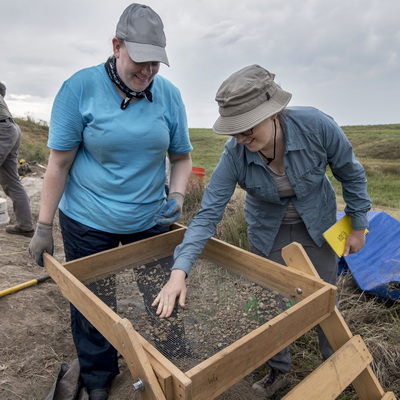
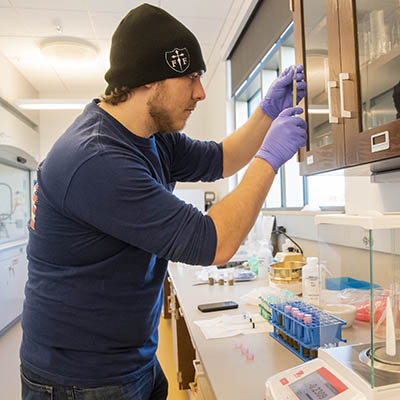
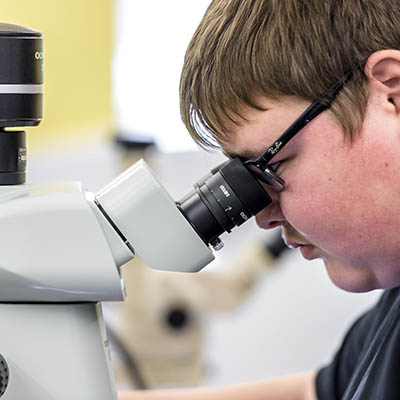
Other criminal justice degrees
The criminal justice department also offers degrees that will prepare you for a career in law enforcement, corrections, security administration or legal studies.
Program cost
Courses in this program are offered at the Traditional Undergraduate and Traditional Online Undergraduate rates. Students in this program are eligible for scholarships and financial aid.
Frequently asked questions
NO!
The current strongly recommended guidelines are 8 credit hours of natural science classes for an individual to meet basic personal certification/laboratory accreditation requirements.
None of the current recommendations for crime scene-related work suggest that the examiner must have a natural science degree.
BUT
It is not uncommon to find larger, accredited forensic labs showing a preference for those individuals who have natural science degrees or more natural science credits than the next person.
NO!
However, some agencies still require the crime scene investigator to become a law enforcement officer. Some agencies have both certified law enforcement officers and civilians working crime scenes. Other agencies have removed the CSI role from the law enforcement function, and the CSIs are strictly civilians.
Most agencies in Kansas have their crime scene division incorporated into their patrol division. Therefore, if your interest is to stay and work in Kansas, then you might consider attending the police academy in the future!
The answer is neither.
Forensic psychology is a discipline that revolves more around pursuing a psychology degree and later utilizing it in criminal investigations after future forensic psychology training.
GET IN TOUCH WITH Criminal Justice & Legal Studies
Criminal Justice & Legal Studies
School of Applied Studies, Room 301
1700 SW College Ave.
Topeka, KS 66621
Phone & Email
785.670.1411
criminal-justice-ls@washburn.edu


